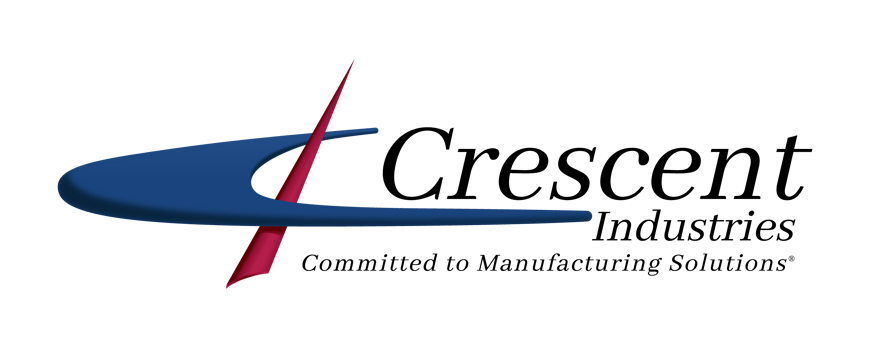
Injection Molding Standards for Medical Devices
The medical industry is one of the most regulated industries worldwide. So, as you'd imagine, injection molding for medical devices is subject to strict standards and regulations. Just like a recipe needs precise measurements and ingredients to turn out right, medical devices made from plastic injection molding must follow specific rules and regulations. These medical devices must meet incredibly high plastic injection molding standards to ensure they are safe for patients and effective for medical professionals.
The Importance of Upholding Standards in Medical Device Manufacturing
When it comes to medical devices, precision and safety are paramount. A patient's health and well-being depend on the reliability and quality of these devices. And it's not just about the patients: Medical professionals rely on these devices to be consistent, accurate, and safe. A medical device that isn't up to standard could lead to a life-threatening situation.
For manufacturers, your reputation is on the line. A single device failure due to subpar manufacturing processes can tarnish your company's name. Moreover, you risk facing regulatory action. Fines and recalls can be costly, not to mention the time and resources you spend rectifying these issues.
How To Ensure Quality for Medical Devices
Ensuring your injection molding partner follows and adheres to the best practices for injection molding, fabricates a precision injection mold, and develops a robust, reliable, and repeatable molding process that follows regulatory standards.
Follow Regulations and Compliance
One of the first steps in maintaining plastic injection molding standards for medical devices is to follow all the rules and compliance standards set by different authorities and government bodies. Two of the most prominent and essential players in setting manufacturing standards for medical devices in the U.S. are the Food and Drug Administration (FDA) and the International Organization for Standardization (ISO). They set the standards for manufacturing all medical devices, including those manufactured using injection molding.
Significance of ISO 13485 for Medical Devices
ISO international standards for medical devices are developed by the Technical Committee ISO/TC 210.
One of the standards developed by the ISO/TC 210 is ISO 13485. While ISO 13485 doesn't directly address injection molding techniques, it plays a crucial role in the broader context of injection molding standards for medical devices. Here's how:
- Quality Management: ISO 13485 ensures that the injection molding processes adhere to stringent quality control measures. It outlines a quality management system for medical device manufacturers that encompasses all aspects of device production, including plastic part design, development, manufacturing, and post-market surveillance.
- Risk Management:ISO 13485 emphasizes the importance of risk management when designing and manufacturing medical devices. This means you should identify potential risks associated with the molding process, materials, and product design.
- Documentation and Traceability: ISO states that manufacturers should maintain records throughout manufacturing to identify and address any issues arising during production. You should, therefore, keep detailed records of materials used, process parameters, and quality control measures.
- Regulatory Compliance:Many regulatory authorities worldwide, including the FDA, recognize ISO 13485 as a benchmark for demonstrating compliance with quality management requirements. If you use injection molding for medical device components, you must align your processes with ISO 13485 to meet regulatory expectations and obtain necessary approvals or certifications.
FDA Regulations
The FDA also has regulations and guidelines that medical device manufacturers must follow regarding injection molding standards. These regulations ensure the safety and effectiveness of medical devices produced using injection molding techniques. Here are some key FDA regulations related to injection molding standards for medical devices:
- Good Manufacturing Practices (GMP):FDA's GMP regulations outline the standards for designing, manufacturing, and controlling the production of medical devices.
- Quality System Regulation: The FDA's Quality System Regulation, often referred to as 21 CFR Part 820, provides detailed requirements for establishing and maintaining a quality management system for medical device manufacturing. This includes documentation, process validation, and design controls, all relevant to injection molding processes.
Design and Manufacturing Control
Design and manufacturing control in injection molding refers to managing and overseeing various aspects of the process to ensure that the final products meet specified quality, safety, and performance standards. During the design phase, you can choose the production tool, specify the mold designs and dimensions, cavities, and cooling channels, and establish injection molding tolerance standards.
Manufacturing control involves overseeing the actual injection molding process. Key aspects of manufacturing control include:
- Preparing and handling the raw materials to ensure uniformity and quality
- Setting and controlling the parameters of the injection molding machine, including temperature control provisions, ejector pins pressure, and cycle time, to achieve uniform quality of molten plastic
Ensuring you meet injection molding standards for medical devices starts with partnering with a trusted and experienced manufacturer like Crescent Industries. We offer a single-source solution for injection molding services, prioritizing precision, quality, and regulatory compliance.
Achieve Regulatory Compliance With Crescent Industries
At Crescent Industries, we understand the critical importance of adhering to injection molding standards, especially in the medical and healthcare sectors. Our advanced engineering capabilities empower us to work with a comprehensive range of engineered and commodity-grade resins, ensuring that your custom-molded components meet and exceed regulatory requirements.
Resources
https://www.iso.org/standard/59752.htmlhttps://www.fda.gov/inspections-compliance-enforcement-and-criminal-investigations/inspection-guides/page-9https://control.com/technical-articles/control-considerations-for-plastic-injection-molding/https://timebusinessnews.com/materials-used-in-medical-injection-molding-selection-criteria-and-key-considerations/
Related Articles
-
Mar 17, 2025
Labware & Diagnostic Injection Mold Building and Molding
Read MoreMedical device molding requires much higher levels of precision injection molding and tolerance...
-
Jan 10, 2025
Benefits of a Plastic Medical Device Manufacturer
Read MoreReusable and single-use plastic medical devices are held to high standards of sanitation, texture,...
-
Jul 24, 2024
The Evolving Landscape of Custom Injection Molding
Read MoreA big part of establishing your foothold in any industry is adopting—or at the very least, staying...

